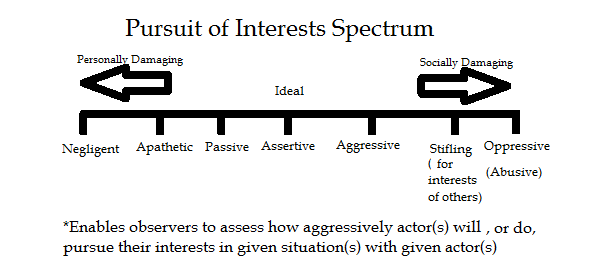Defining AbuseA woman constantly hitting her husband would not be considered abuse according to some. On the other hand, there are women who claim a man is abusive and controlling, because he tells them unhealthy behavior like smoking is bad. In other words, they use the concept of abuse to disarm his peer pressure and suppress his views. Abuse is a concept people struggle to understand. In fact, most professional councilors would probably be hard pressed to offer a clear, concise working definition of abuse that most people would want to accept.
The violence involved in physical abuse is simply a tool by which abuse is expressed. In reality, controlling behavior, manipulation, verbal abuse, emotional abuse, and other forms of personal attacks are just avenues for abuse. Although examples of these types of abuse help people recognize the possibility that someone is being abused, the most effective means of distinguishing between abuse and non-abusive behavior is to build a definition around the purpose of abusive behavior. The problem with defining abuse is that for every act, which can be interpreted as abusive, there are legitimate reasons for responding in such a way. If someone threatens or attacks someone, their response is self-defense, whether it involves a violent or aggressive response. Verbal, emotional, and psychological abuse, in general, are often ways of defending oneself, especially when an individual is particularly passive-aggressive. Meanwhile, social abuse, such as bullying, slander, harassment, and abusive uses of peer pressure, can be difficult to distinguish from acceptable behavior. As such, the real question, when dealing with a suspected cause of abuse, revolves around whether or not someone is a victim. Aggression and violence are reactions that society either treats as acceptable or unacceptable. In other words, individuals assign the term “abuse” to certain behaviors in order to discourage that behavior. To stop abuse, communities must, therefore, have a legitimate definition for abuse that authorities, communities, and the bulk of individuals will enforce. People engage in abusive behavior to try to get their way when others will not, or cannot, compile with their impulses and other demands. Clearly, life is centered on the pursuit of one’s interests while society functions on the balancing of everyone’s interests. Looking at abusive behavior as the extreme of a spectrum that charts the pursuit of one’s interests, the meaning of abuse can be understood in broad terms, not just examples of abusive expression. Ideally, all individuals, as well as others actors like businesses and governments, are able to pursue their interests in an assertive manner. On the one end of the spectrum, actors harm themselves by pursuing their interests, not necessarily by choice, in passive to apathetic to negligent ways. On the other end, actors harm others and their communities when they pursue their interests in overly aggressive to abusive ways. Any kind of behavior can be abusive. By defining abuse in terms of pursuing one’s interests, efforts to stop abuse can focus on steering abusive actors, which includes more than just people, toward healthier ways of pursuing their interests and expressing any grievances they might have. |
|


